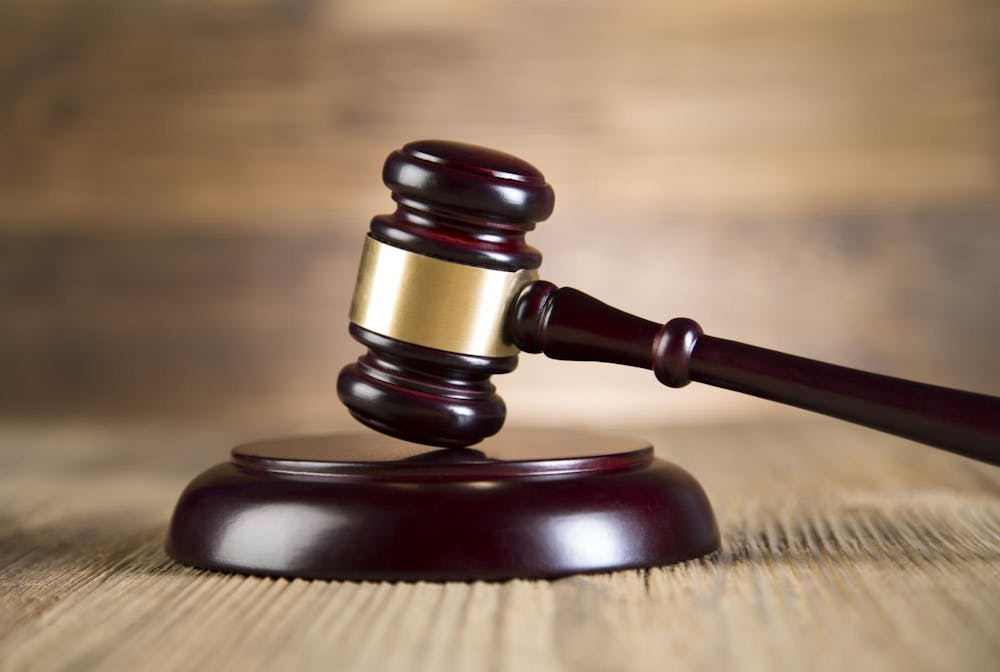The Alabama Supreme Court issued a ruling Feb. 16 allowing several couples to proceed with a lawsuit concerning wrongful death of their children. Seems reasonable, right? A success for grieving parents! But those children? They were embryos. And the Chief Justice’s justification for his ruling? The word of God.
The suit was brought by three couples whose embryos, which were cryo-preserved at a fertility clinic, were destroyed in 2020 by a meddling patient. The suit aims for the fertility clinic and the hospital it is within and cites Alabama’s Wrongful Death of a Minor Act as justification for the case. After an initial trial proved unsuccessful, the couples appealed to the Alabama Supreme Court. Here, they were in luck. The Court ruled that “unborn children,” including “extrauterine children,” are considered to be minor children. As such, the Wrongful Death of a Minor Act applies to the destroyed embryos and the suit may proceed.
A lot has already been said about the decision itself — how it aids in the anti-abortion movement and the potential effects on in vitro fertilization. But I have no desire to step into the messy argument surrounding the outcome of the appeal. What interests and shocks me most is how openly Chief Justice Tom Parker cited Christian religious texts and beliefs in his explanation for the ruling.
A search of Judge Parker’s 23-page concurring argument reveals the word “God” is mentioned 40 times. He quotes the Book of Genesis, theologian Thomas Aquinas and the Ten Commandments.
“Human life cannot be wrongfully destroyed without incurring the wrath of a holy God, who views the destruction of His image as an affront to Himself,” he writes. “Even before birth, all human beings bear the image of God, and their lives cannot be destroyed without effacing his glory.”
This is not the first time Parker has used religion in his arguments, as outlined in a 2014 ProPublica investigation. “When judges don’t rule in the fear of the Lord, everything’s falling apart,” he once said.
And this is also not a case of a singular judge citing religion in a legal case. A 2009 Liberty University study found at least 515 cases in which the Ten Commandments were cited. The study found that the Commandments were cited for a variety of reasons, including to “underscore the importance of a statute and enhance its moral authority.”
I believe it is totally inappropriate for a judge to use religious reasoning such as this in a legal decision. Religion is a private entity in the U.S. Inclusion in case arguments inappropriately brings religion into the public sphere and violates separation of church and state. Theology has no place in law.
Judges’ decisions apply to all citizens, not just those who share the exact religious beliefs of the judge. Even within religions and sects, there are plenty of differing beliefs. By citing religion as not just a cursory but a main argument, Judge Parker and judges like him impose religion on citizens. According to the Free Exercise Clause in the First Amendment, citizens have a right to practice religion (or not practice religion) as they please. But by including religion in legal decisions, people’s choice of religion is taken from them and they are restricted and ordered by religious beliefs that may not reflect their own.
Our nation’s commitment to religious freedom is written in our founding documents and central to our history. The Establishment Clause of the First Amendment declares that the government may not make any law “respecting an establishment of religion.” There are countless articles and debates over the exact breadth of this ruling and how much religion may be tolerated. But the intent was clearly to create a secular state. Thomas Jefferson, who argued for the creation of the Bill of Rights, famously compared the First Amendment to a “wall of separation” between religion and the government.
Some people argue that the US was founded on Christian ideals, and as such it is acceptable to include some religion — specifically Christian rhetoric — in government. I reject this notion. Yes, the Declaration of Independence mentions “creator” and “nature’s God” — but it never says exactly who that is or identifies a specific religion. Our founding documents were influenced most of all by Enlightenment thinkers’ ideas about natural rights, not by scripture. While many of the Founding Fathers were Christians and may have been motivated in some way by their Christian faith, this was not the intent of the group.
I would be remiss to ignore the fact that it is predominantly Christian beliefs that are cited in law. Any non-Christian religion in law is seen as suspect. Our willingness to allow Christian religious arguments in court documents would likely evaporate if it were any other religion. The mere nomination of a Muslim judge for a circuit court position was met with increased scrutiny, which the Biden administration attributed to Islamophobia.
The intrusion of religion into the legal system is a threat to our democracy. Judges act as agents of the government, and as such, should refrain from arguments and legal decisions grounded in religious beliefs. Of course, judges have personal lives, which inevitably involve a range of experiences that shape their view of the world. Many judges have personal religious beliefs, and it would be ridiculous to suggest they should not. But their decisions should stand on their own, without use of scripture or invocations of God.
Samantha Camire (she/her) is a freshman studying journalism with a minor in Spanish.






